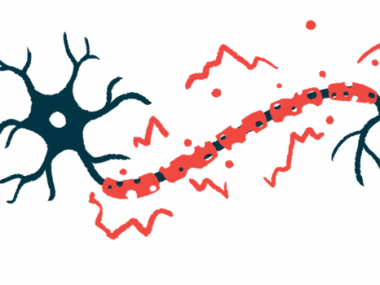Exicure to Target Friedreich’s Ataxia in First Effort to Treat Neurologic Disorders
Written by |

The first therapy development program for neurological disorders launched by Exicure will focus on Friedreich’s ataxia (FA), the company announced.
Its FA program will be developed in collaboration with the Friedreich’s Ataxia Research Alliance (FARA), it added.
FA is caused by the expansion of the GAA trinucleotide repeat in the FXN gene, which provides instructions for the production of the protein frataxin. This results in low amounts of functional frataxin, ultimately leading to the symptoms of this disease.
Because the underlying cause of the condition is genetic, some proposed therapeutic strategies involve the delivery of compounds into cells that can alter how genes are expressed.
Oligonucleotides — small molecules of nucleic acids (DNA or RNA) — are well-suited for this purpose, as they can be engineered to produce a variety of effects and can be designed for different genetic targets.
However, it can be difficult to get therapeutic oligonucleotides into cells, especially cells inside a living person. Exicure’s technology focuses on the use of spherical nucleic acids (SNAs) to overcome this problem.
SNAs, as their name suggests, are sphere-shaped constructs composed of very tightly packed oligonucleotides surrounding a nanoparticle core. Because of their shape and structural properties, SNAs are more easily taken in by cells and persist longer than some other forms of oligonucleotides, as validated in studies done in animal models.
Moreover, studies in rodents and non-human primates showed “distribution of SNAs to all brain regions following intrathecal [spinal cord] administration, including those relevant in FA,” the company’s release stated.
The oligonucleotide-based therapy, Spinraza (nusinersen) by Biogen, which is approved to treat spinal muscular atrophy, “showed improved potency … when put into an SNA format” in a study done in rats. Such results support the potential of SNAs for the treatment of central nervous system (CNS) conditions.
“Over the past year Exicure has developed extensive preclinical data supporting the development of our SNAs for neurological disorders. We’re eager to evaluate our technology for this important unmet medical need,” David Giljohann, PhD, the chief executive officer at Exicure, said.
“Exicure’s SNA technology is unique in its ability to target the affected gene in FA. FARA has championed collaborative approaches to drug development, and we’re thrilled to work with Exicure as they develop their genetically targeted therapeutic candidate,” said Jennifer Farmer, the chief executive officer of FARA.
The company expects work toward a new drug application for a SNA-based FA therapy to begin in 2020.





